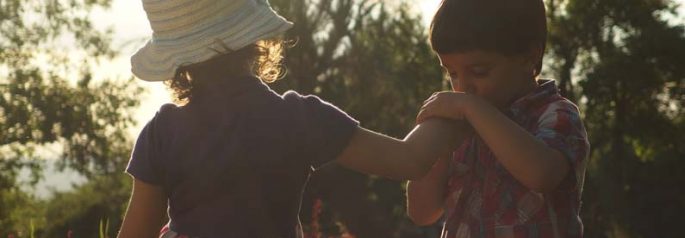
No parent wants to raise a spoiled brat–a kid who is selfish, demanding and insensitive to others.
But what is it that spoils children? I don’t think it’s an abundance of love and thoughtful attention. I think it more likely happens when we substitute material things for genuine love, when we try to give them everything they want, when we try to appease their every desire, when we indulge them with loads of toys and feel like failures if they aren’t always happy.
I think spoiling happens when we give our kids junk food that provides short-term pleasure, instead of providing them with real nourishment.
The truth is that we live in a culture where, as environmentalist Bill McKibben puts it, “almost everyone is a little spoiled, where spoiling children underwrites a significant part of the economy.”
If a child’s needs become so paramount to the parents that they sacrifice everything, the child feels insecure, with little chance to learn how to live a self-reliant life. If parents can’t tolerate any discomfort from their child, if they can never say no to him or her, the child grows fearful. If parents have no sources of joy other than their children, the children may believe they are the center of the universe.
What spoils kids is when they are taught to fill up their emptiness from the outside by purchasing things and activities, rather than learning how to fill themselves up from the inside through making good choices, caring, and creativity.
It’s not love that spoils our kids. They become spoiled when we ply them with too many toys, too much stimulation, and too much of the wrong kind of attention. They become spoiled when they learn, often from our example, to identify their self-worth with others’ approval, with how they look, with how much stuff they have, with how expensive their clothes are, or with how large their homes are.
We spoil our kids when we teach them to meet their deepest spiritual and emotional needs with material things. We spoil them when we don’t help them to learn to deal with disappointment or to learn about the joys of helping others.
Spoiling happens when kids aren’t helped to know their own inner beauty, when they feel they will be valued only for their looks, possessions or performance. Spoiling happens when children aren’t celebrated for who they are — when they are forced to pretend, to put on a mask, to ignore their own deepest promptings and truth. Spoiling happens when kids aren’t valued for their inner qualities, their kindness, their laughter, their inspirations, their passion for life.
You may sometimes feel that children aren’t listening to you, but I can assure you they are always watching you. They may not seem to be heeding your words, but they are paying a great deal of attention to your example. They are great imitators, so be careful what you give them to imitate.
When you thought I wasn’t looking,
You hung my first painting on the refrigerator,
And I wanted to paint another one.
When you thought I wasn’t looking,
You fed a stray cat,
And I thought it was good to be kind to animals.
When you thought I wasn’t looking,
You baked a birthday cake just for me,
And I knew that little things were special things.
When you thought I wasn’t looking,
You said a prayer,
And I believed there was a God that I could always talk to.
When you thought I wasn’t looking,
You kissed me goodnight,
And I felt loved.
When you thought I wasn’t looking,
I saw tears come from your eyes,
And I learned that sometimes things hurt
But that it’s alright to cry.
When you thought I wasn’t looking,
You smiled
And it made me want to look that pretty, too.
When you thought I wasn’t looking,
You cared,
And I wanted to be everything that I could be.
When you thought I wasn’t looking, I looked,
And wanted to say thanks
For all those things you did
When you thought I wasn’t looking.
This poem was written by Mary Rita Schilke Korzan, in gratitude to her mother, Blanche Schilke. She didn’t thank her mom for the money she spent on her, for the presents she bought her, or for the advice she gave her. She didn’t thank her mother for sending her to the best schools or for making sure she had designer clothes.
But it’s a poem that I think any parent would be grateful and happy to someday receive from a grown child. May it remind us all that the example we set for our children by the way we live is our real message to them.

